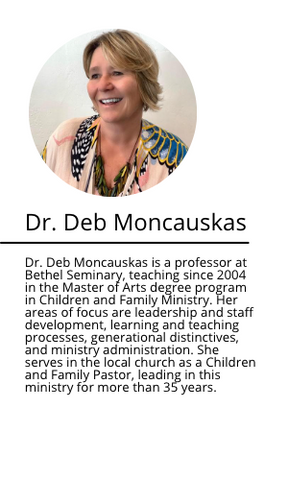
Leadership is developed over time. Leadership can be learned by identifying gifts, strengths and abilities and then using that knowledge in practice to grow and develop as a leader. People lead from who they are, including natural abilities, values, personality, life experiences and family foundations, but leadership skills can be learned and put into practice by anyone who accepts the challenge to lead. --(Kouzes & Posner, The Leadership Challenge)
Proverbs 22:6 instructs adults to “Train up a child in the way he should go; even when he is old he will not depart from it” (ESV). The church has not spent much time training young leaders. Children have not been encouraged to use their God-given gifts, skills, and abilities; and have been excluded from participating fully in the life and mission of the church. So often we provide distractions for kids in church, like coloring pages, busy bags, and toys rather than giving them opportunities to engage fully in the worship experience. Failing to develop these young leaders and not allowing them to use their gifts, skills, and abilities in meaningful ways within the Body of Christ has delayed the full participation of children within the church and the church has missed out on their potential contributions.
So how do we begin? We must first create an environment that encourages and supports young leaders. This should be a place where they can try new things, have the freedom to fail, be empowered to dream, create, and develop a way forward. Give them opportunities to lead. When children practice leadership, they will begin to think of themselves as leaders.
There are important leadership skills identified in current leadership research and generational studies that should be included when developing young leaders. Training should help children understand who they are. Provide experiences that build into the child a healthy self-esteem, self-acceptance, and self-respect. Help them understand their identity in Christ—they are chosen, loved, known, redeemed, adopted, forgiven, and valued. “See what great love the Father has lavished on us, that we should be called children of God! And that is what we are! The reason the world does not know us is that it did not know him” (1 John 3:1, NIV).
An understanding of self would also include helping them identify their learning styles, values, strengths, and challenges. This knowledge of self helps children take responsibility for their lives and become leaders who are easier to follow and worth following. Isn’t this what we want for those leading within the church?
To develop young leaders, leadership skills should be intentionally taught, modeled, practiced, and reinforced. What are some of the necessary skills, abilities, and behaviors to help them grow as leaders and world changers?
- Focus development on building character in the leaders so that they are worthy to follow. This would include honesty, integrity, humility, empathy, commitment, and accountability.
- Help them discover their values, core beliefs, strengths, and spiritual gifts. We lead from who we are.
- Involve children in service to others, locally and globally. This service will not only strengthen their faith but also increase their knowledge of leadership skills.
- Communication skills are an important part of leadership development. Teach emerging leaders to say what they mean or want clearly, so that others understand.
- Decision-making skills and problem-solving skills should be another piece of leadership development. They need to be able to figure out what the problem is and then make the right decision at the right time. Help children learn how to make wise and sound decisions and to take responsibility for those decisions.
To raise young leaders who will make a difference in their world, we need to be intentional and focused on building into these young people character attributes that are worth following and the skills needed to lead. Intentionality in training and teaching leadership attributes and skills will help them to begin to think, behave and act like leaders and in doing so they are more likely to be leaders later in life.
You can access this entire magazine for free here: Edition 37

